![[K-2nd] ABL Lab - Action Based Learning](http://abllab.com/cdn/shop/files/Screenshot2024-10-01at9.52.18AM_{width}x.png?v=1727790748)
![[K-2nd] ABL Lab - Action Based Learning](http://abllab.com/cdn/shop/products/69dd824b182ed1931e43ada2bc0acf96_2_{width}x.jpg?v=1723747361)
![[K-2nd] ABL Lab - Action Based Learning](http://abllab.com/cdn/shop/products/5_{width}x.jpg?v=1723747361)
![[K-2nd] ABL Lab - Action Based Learning](http://abllab.com/cdn/shop/products/4_{width}x.jpg?v=1723747361)
![[K-2nd] ABL Lab - Action Based Learning](http://abllab.com/cdn/shop/products/6_{width}x.jpg?v=1723747361)
![[K-2nd] ABL Lab - actionbasedlearning](http://abllab.com/cdn/shop/products/Screen_Shot_2019-10-01_at_3.39.40_PM_{width}x.png?v=1723747361)
![[K-2nd] ABL Lab - actionbasedlearning](http://abllab.com/cdn/shop/products/Screen_Shot_2019-10-01_at_3.39.50_PM_{width}x.png?v=1723747361)
![[K-2nd] ABL Lab - Action Based Learning](http://abllab.com/cdn/shop/products/1570466660207_1_{width}x.jpg?v=1723747361)
Action Based Learning K-2 Lab
Why the Action Based Learning Lab?
Research shows children are not reaching their full potential if they are sitting all day. When children are active, the brain makes connections needed for anchoring information, memory, and recall.
ABL uses purposeful movement strategies to the child's advantage, resulting in healthier, happier students who test higher.
Movement not only grows new brain cells and prepares the brain for learning, but it works to enhance development, and helps close learning gaps in students who are struggling. Simply put, ABL Labs are designed to prepare the brain for learning.
What is the brain body connection?
Research shows the strong connection between the brain and body and the link to overall cognitive development.
What is the purpose of the lab?
To prepare the brain for learning!
Brain science strongly supports the link between movement and learning. The brain and body's movement and learning systems are interdependent and interactive. For example, the body's vestibular system controls balance and spatial awareness and facilitates the student's ability to place words on a page! The body's motor, balance, and vestibular systems must be developed properly in order for the brain to have the mechanisms necessary to process information. If a child skipped crawling, for example, the brain may have missed a step in practicing processing information. If the child is given the opportunity to practice and rewire those systems, then the brain is able to develop the foundations necessary for learning readiness. Proper development and remediation of these systems are critical to a childs’ success in the classroom. Learn more
What are the 12 Foundations of Learning Readiness?
Each active learning station in the lab, applies what we know about the brain body connection by focusing on the 12 Foundations of Learning Readiness.
There are 12 core foundational skills that help students build the framework (and prepare their brains) for learning: cross lateralization, body in space, balance, visual development, tactile learning, motor skills, visual tracking, hand/eye/foot coordination, cardiovascular and physical fitness, rhythm, problem solving, and mindfulness. Practicing these foundations helps us close learning gaps and help students reach their maximum learning potential.
ABL K-2nd Complete Lab Package:
ABL Labs come with formal training and classroom certifications for schools and after school learning centers. ABL Lab packages are customized to fit individual needs, budgets, and spaces. All ABL Labs include stations to target all 12 Foundations of Learning Readiness.
Keep in mind, since Action Based Learning Labs are customized and based on the needs of the school, your lab can be built slowly over time. It is not required to start with the complete lab package. We often work with schools who begin with little to no budget, providing long term planning and support, as well as assistance in grants and funding.
Request a free needs assessment for your school, and receive a custom quote same day. For funding and grant opportunities, check out the ABL grants page.
Is the ABL lab sold in a package or by individual stations?
Both! Many schools opt for the entire lab package, which includes staff training, lab manuals, support materials, activity guides, as well as all of the stations necessary to focus on the 12 Foundations of Learning Readiness. However, not all schools will have the resources to implement a complete lab package immediately. Action Based Learning Labs can be customized to fit the specific needs of the school. The first (and highly recommended) step is to attend an Action Based Learning training. Trainings provide an in depth understanding of ABL, the brain research behind the 12 Foundations of Learning Readiness, and allow educators to leave with a vision of what ABL looks like in the school setting!
Who runs the lab?
Typically, classes are scheduled 2-5 times a week for 20-30 minute lab sessions. The lab may be facilitated by the individual teacher during the scheduled time. Ideally, the school designates a lab coordinator to facilitate the ABL Lab. Many times, the physical educator or health and wellness coordinator takes the initiative to lead ABL within their own school and/or districtwide.
Recommended to include in K-2 Lab:
(1) Numeracy Noggin Wall Mount
(1) Letter Learning Wall Mount
(1) Keyboard Mat
(1) Platform Steps
(1) Veggies Boxes
(1) Add-On Incline Crawl Ladder for Veggie Boxes
(1) Whaler Sensory Board
(1) Green Rockin' Turtle Shell
(1) Telephone Math Mat
(1) ABL Ladder Package w/ Academic Cards
(5) Balance Boards
(1) Roll & Crawl Mat Package
(1) Balance Rope
(1) Balance Beam
(1) Ele-Fun Eye Tracker
(1) Monkey See Eye Tracker
(1) Rainbow River Stones Set
(1) Helicopter Spin
(1) Frog Hop Number Line Mat
(1) Geo Color Hop Mat
(1) High Five Jungle Cross-Lateralization Wall Mount
(1) Yoga for Kids Wall Mount
(1) Animal Round-Up Wall Mount
(1) Tactile Stepping Pathway
(1) BBA Graphics Package
(1) ABC Pathways Mat w/ Teacher & Student Cards
(1) Eye Tracking & Balance Surfboard
(1) Super Small Swim N Spin
Music to my ears! 🎶 We had a great time in our ABL lab singing a song about our multiples of 7. @LiestmanES @Kidsfit_ABL @AliefABL pic.twitter.com/LkxFl4HAao
— Stephanie Ramos (@MissSRamos__) October 20, 2022










































